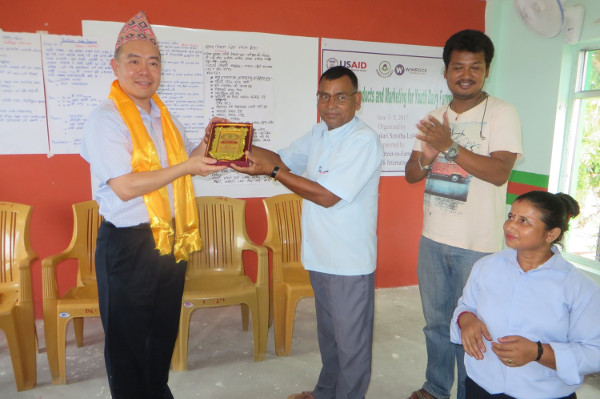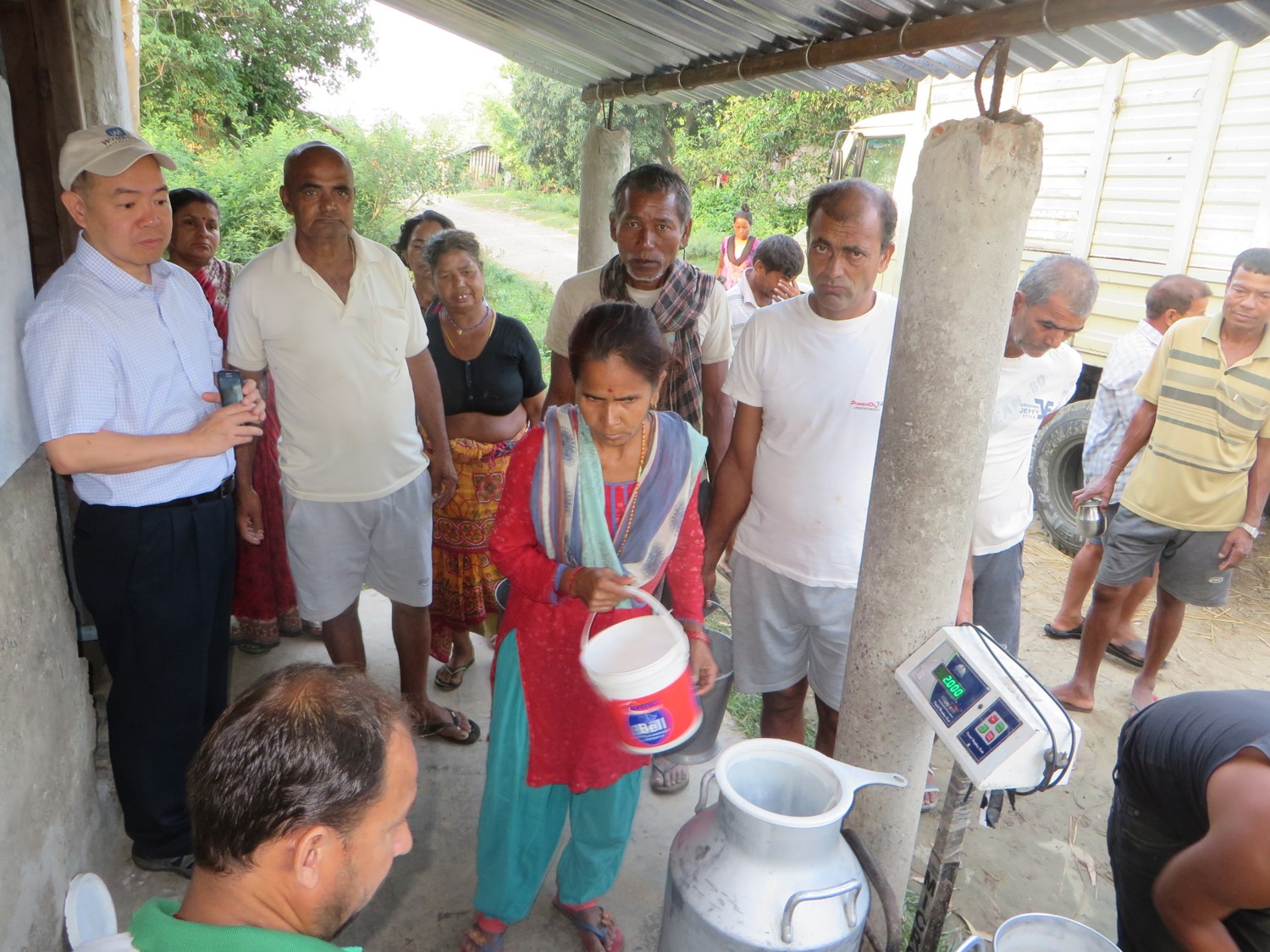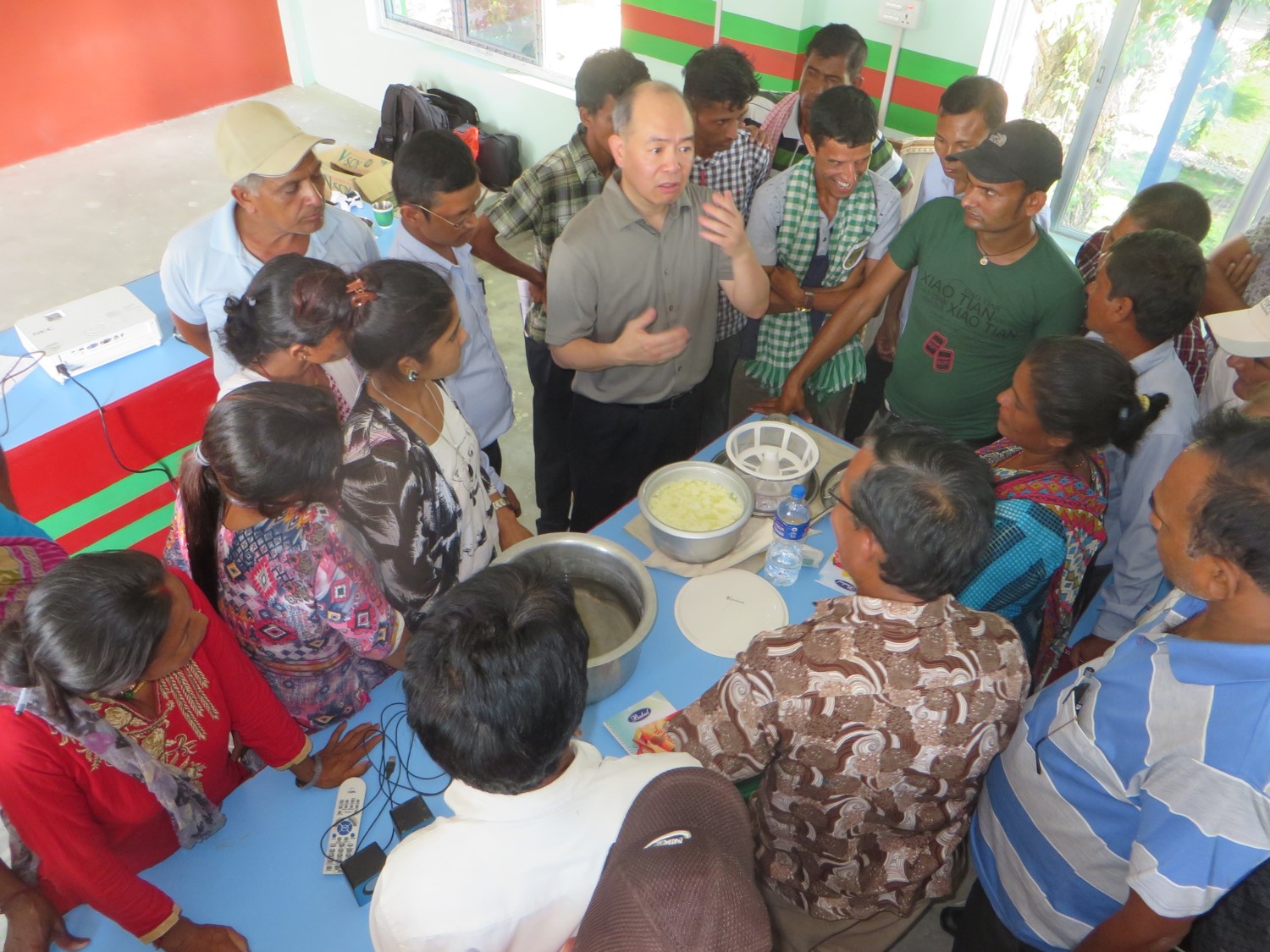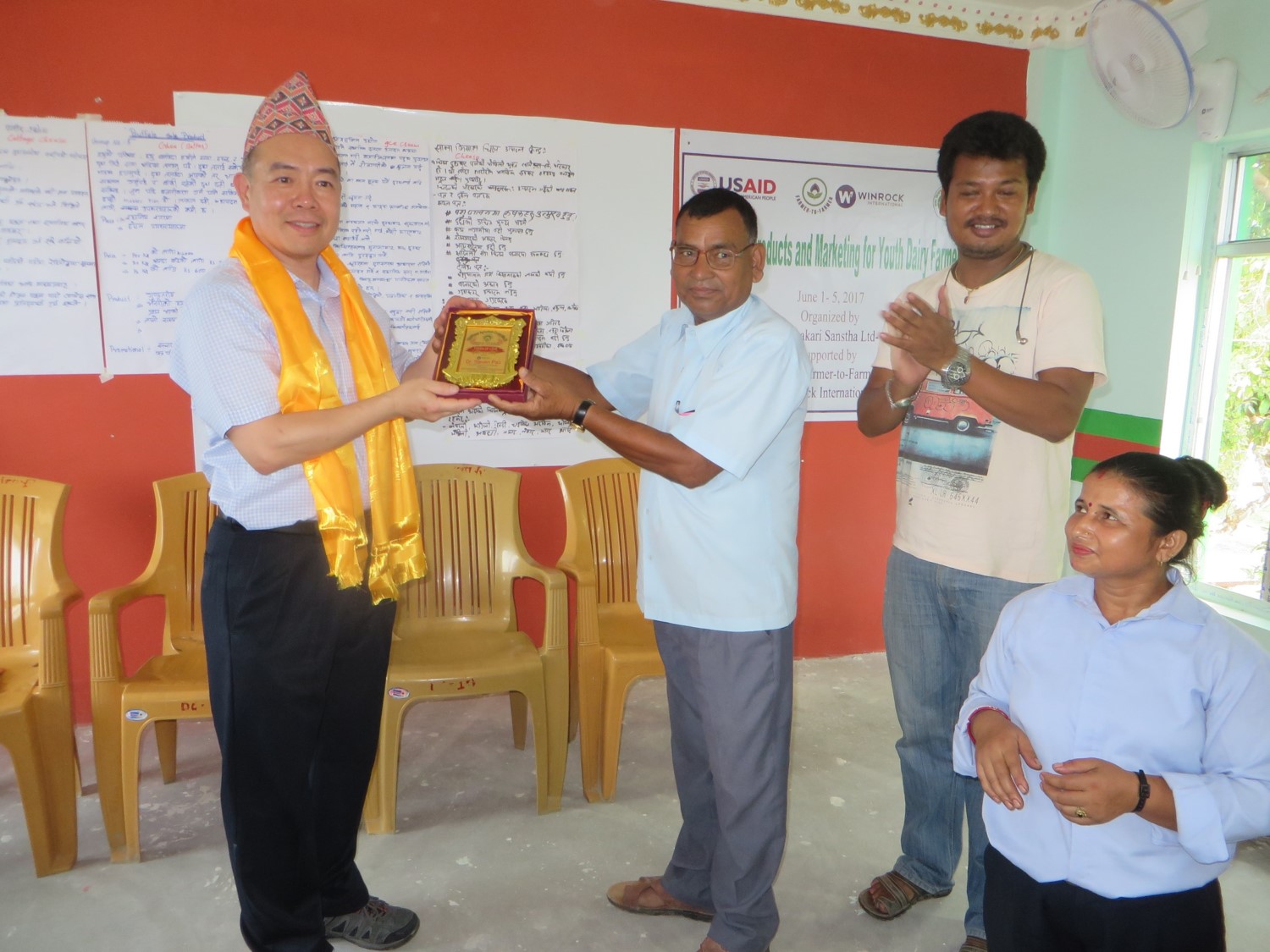
Volunteer Post
Sharing is Learning
A Rewarding First-time Experience in Nepal
F2F volunteer, Dr. Steven Pao
This blog comes from F2F volunteer, Dr. Steven Pao, a Food Science Professor at California State University, Fresno. Dr. Pao recently volunteered in Nepal where he trained dairy farmers (63% youth) from Sana Kisan Krishi Sahakari Sanstha Ltd. on clean and hygienic milk production, safe dairy product development, product diversification, and product marketing. Mr. Dhruba Koirala, Cooperative Chairperson, noted, “Volunteer Steven Pao is a qualified volunteer on his subject matter as well as his deliverable methods and practical training approach was simple and remarkable to trainees. He is a highly recommend volunteer for the similar training.” This assignment hopes to build the technical skills of youth dairy farmers to enhance their employment and income opportunities.
In most of the Farmer-to-Farmer projects I’ve volunteered for (over a dozen by now), my service starts by touring the host’s current operation sites before delivering a custom-made technical training and/or consultation. This Nepal assignment was no different. After entering Nepal and receiving a welcome briefing from Winrock’s Country Director in Kathmandu, an assignment Translator/Facilitator accompanied me as we flew to the host site, Chandrapur, a southern municipality near the border of India. The opportunity here was to share dairy processing and sanitation knowledge with local farmers from the Sana Kisan Krishi Sahakari Sanstha Ltd. through an assignment called “Quality Milk Products and Marketing Training for Youth Dairy Farmers.”
Sharing knowledge with local residents is always fun and rewarding and this is particularly true for volunteer Farmer-to-Farmer projects like this one. Before the workshop, the host cooperative invited me to visit their local dairy farms and milk collection stations. These observations were essential in helping me understand their current practices, and I used visitation notes and photos to generate a list of dos and don’ts specifically for protecting their milk quality.

Building a high-level of awareness and consistent practice for sanitary operation was one of the challenges, since the dairy cooperative depends on many very small-scale farmers to provide raw milk. We soon figured out that developing standard operation procedures (SOPs) for sanitary milk collection was a necessary, yet achievable, objective for this assignment. During the 5-day workshop, with about 30 local farmers actively participating, we studied milk quality control and sanitation principles. The participants also worked in small groups to draft workable operation procedures. The self-generated procedures were then posted in the conference room, discussed in joint sessions, translated into English, and adopted by the participants to be used as their SOPs.
Currently, the dairy cooperative’s milk collection center sells raw milk to both locals and out-of-town milk processors. There is an ongoing effort to develop a pasteurization capacity to help diversify their product line for better incomes. For this reason, the workshop introduced a variety of techniques on how to turn raw milk into value-added products (such as lemon cheese and Greek yogurt). The goal of this training was to help the farmers to understand both the benefits and challenges of product diversification. The participants recognized the importance of temperature, pH, and sanitation controls during the hands-on training activities.

The workshop ended with a renewed commitment to quality milk and milk product production. I was honored to receive a Token of Appreciation plate along with a Dhaka topi (a type of Nepali hat) and a Khata (a traditional ceremonial scarf) in a heart-touching closing ceremony. Throughout the week, the host cooperation and participating farmers continually impressed me by their unwavering dedication and focus to effectively complete the training despite some of the hottest summer days. Also, it should be acknowledged that the workshop could not have been delivered so smoothly without Winrock International staff’s outstanding assistance in all communication needs; their assistance was invaluable.

